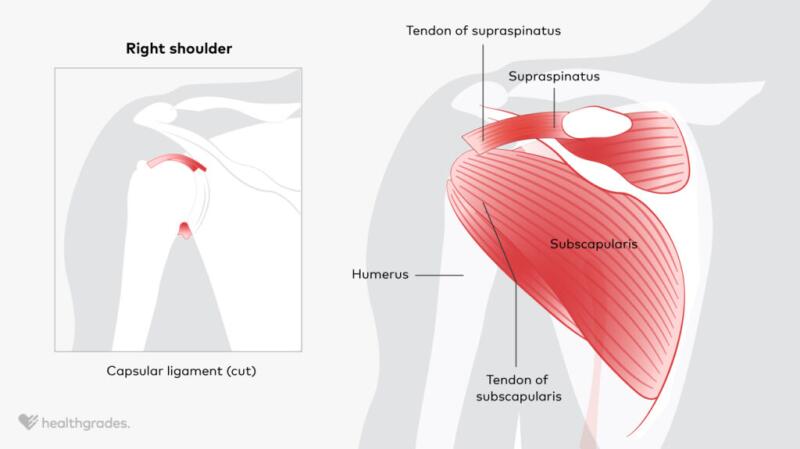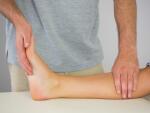While rotator cuff tears are common, not all of them require surgery. When surgery is a great choice for treatment, you have options.
This article goes over surgical options for rotator cuff repair. It includes information about the procedures, preparation, risks, and recovery.
What is rotator cuff surgery?

Rotator cuff surgery is the surgical repair of a damaged rotator cuff tendon. The rotator cuff tendons are tough pieces of connective tissue that control the motion of your shoulder joint.
Three bones meet to form your shoulder joint — the upper arm bone, shoulder blade, and collarbone. Tendons attach a group of four muscles to these bones to form your rotator cuff.
Rotator cuff repair can help restore pain-free range of motion and full function in a damaged rotator cuff.
What are the types of rotator cuff tears?
The two types of rotator cuff tears include:
- Complete or full-thickness repair: When your tendon detaches completely from the bone, your surgeon will reattach your tendon to the bone.
- Partial tear repair or debridement: When a tear begins with fraying and inflammation of your tendon, your surgeon may only need to trim and smooth it.
Why is rotator cuff surgery performed?

Rotator cuff damage
A damaged rotator cuff can limit the use of your shoulder and cause pain. Surgery can treat a damaged rotator cuff.
Your doctor may recommend rotator cuff surgery if your tendon tear involves:
- recent injury
- weakness or loss of shoulder function
- symptoms, such as pain, that lasts for 6–12 months
- interference with work or sports that involve overhead reaching
- size larger than 3 centimeters (cm), or a little more than 1 inch
- unresponsiveness to nonsurgical management, such as physical therapy
Who performs rotator cuff surgery?
An orthopedic surgeon will perform your rotator cuff surgery. Orthopedic surgeons specialize in the surgical treatment of diseases of the bones and connective tissues.
What are the types of rotator cuff surgeries?
Doctors perform rotator cuff surgery in a hospital or outpatient surgical setting. There are three basic options for repairing a rotator cuff. Most of the time, they are outpatient procedures.
Minimally invasive rotator cuff surgery
Minimally invasive rotator cuff surgery uses an arthroscope. This is a thin, lighted tool with a small camera. The camera transmits pictures to a video screen your surgeon views during the surgery. Arthroscopic surgery is another name for this option.
Arthroscopic surgery involves several small incisions to insert the arthroscope and other tools. This surgery causes less damage to tissues. So, it often has a faster recovery and less pain than open surgery.
Mini-open rotator cuff surgery
Mini-open rotator cuff surgery combines arthroscopic surgery with a smaller open procedure. The incision is 3–5 cm, or 1–2 inches long, smaller than standard open surgery.
Mini-open surgery allows your surgeon to make more extensive repairs than are possible with arthroscopic surgery. Compared t fully open surgery, mini-open surgery causes less damage because muscles remain attached during the surgery.
Open rotator cuff surgery
Open rotator cuff surgery involves a large incision in the shoulder. This lets the surgeon directly view and access the surgical area. It requires more cutting and moving muscle and other tissues aside.
Open surgery generally involves a longer recovery and more pain than minimally invasive surgery because of this. Open surgery may still be the best option with large tears or injuries that require more than one type of repair.
Types of anesthetics
Doctors may use either a regional anesthetic or a general anesthetic for rotator cuff repair:
- General anesthetic: This includes gases you breathe in and medications via IV to put you in a deep sleep.
- Regional anesthetic, or a nerve block: This anesthetic numbs specific nerves so that you do not feel anything in the affected area. You will also be under sedation to keep you relaxed and comfortable.
What are the risks and potential complications of rotator cuff surgery?
Rotator cuff surgery involves risks and potential complications, as any surgery does. Complications can develop during the procedure or recovery. Some can be serious and life threatening.
The general risks of surgery include:
- reactions to the anesthetic
- bleeding
- blood clot, in particular, a deep vein thrombosis
- infection
Complications of rotator cuff surgery can include:
- deltoid detachment, which can occur with open surgery when the surgeon cuts the deltoid muscle to reach your rotator cuff, and then stitches it back in place. It is vulnerable to injury and detachment until it heals.
- nerve damage, which can lead to numbness and tingling in the affected arm
- stiffness and loss of range of motion, which is usually temporary and responds well to physical therapy
- tendon re-tear, which is more common with larger tears
You can reduce the risk of certain complications by closely following your treatment plan. This includes observing any activity and lifestyle restrictions before surgery and during recovery.
How to prepare for rotator cuff surgery?
The steps you take before surgery can improve your outcome after the procedure. Your doctor will give you specific preoperative instructions. In general, you can prepare for surgery by:
- eating a balanced diet, exercising regularly, and getting enough sleep
- getting all necessary preoperative testing
- avoiding eating or drinking before surgery, as your doctor directs
- stopping smoking as soon as possible, which will help the healing process
- taking or stopping medications as necessary
- telling your doctor about your allergies and prescriptions, over-the-counter drugs, herbal treatments, and vitamins
Questions you may want to ask your doctor include:
- Why do I need rotator cuff surgery? What other options are there?
- Which type of surgery will I need?
- How long will the surgery take? When can I go home?
- What kind of restrictions will I have afterward? When can I return to work and other activities?
- What kind of assistance will I need at home?
- How should I take my usual medications?
- How will you manage my pain?
- When should I follow up with you?
- How should I contact you during and after regular hours?
What to expect with recovery after rotator cuff surgery?
Recovery after surgery is a gradual process and recovery times can vary. Typically, you wear a sling for a few weeks after your surgery. This protects the tendon while it heals.
A physical therapy and exercise rehabilitation program will help you recover. Many people return to activities in about 12 weeks. Full recovery times range from 4–12 months.
You will often have pain after surgery. Pain management is important for healing and a smooth recovery. Your doctor and care team can manage your pain to help you recover faster. Contact your doctor if your pain worsens or you feel new pain. It may be a symptom of a complication.
Call your doctor if you have concerns or questions between follow-up appointments. Call your doctor right away or get immediate medical care if you have:
- problems breathing
- confusion or changes in alertness
- drainage, pus, redness, discoloration, or swelling of your incision
- fever, which can be common after surgery, so follow your doctor’s specific instructions about fevers
- inability to urinate, have a bowel movement, or pass gas
- pain that is unmanageable with your pain medication
- unexpected bleeding
Many rotator cuff surgeries are successful. People often have less pain and better shoulder strength afterward. Closely following your rehabilitation plan and activity restrictions will increase the likelihood of a good outcome.
Frequently asked questions
Here are questions that people often ask about rotator cuff surgery.
Is rotator cuff surgery considered major surgery?
The term “major surgery”
How long is too long to wait for rotator cuff surgery?
Surgery is usually a good option for recent tears with symptoms lasting less than a year. Tears often get larger with time, making them more difficult to repair. Contact your doctor promptly to evaluate shoulder pain or injury.
What is the average recovery time for rotator cuff surgery?
It can take up to 8 weeks for the tendon to heal. It usually takes about 12 weeks to return to activities. Small tears often completely heal within 4 months. Complete recovery can take up to a year for severe tears.
Summary
Rotator cuff surgery is one option for treating a damaged rotator cuff tendon. Doctors generally reserve it for cases that do not respond to other treatments. There are a few different ways to perform the surgery.
All rotator cuff surgeries involve downtime. The length of your recovery will depend on the severity of the tear and the type of surgery you have.




